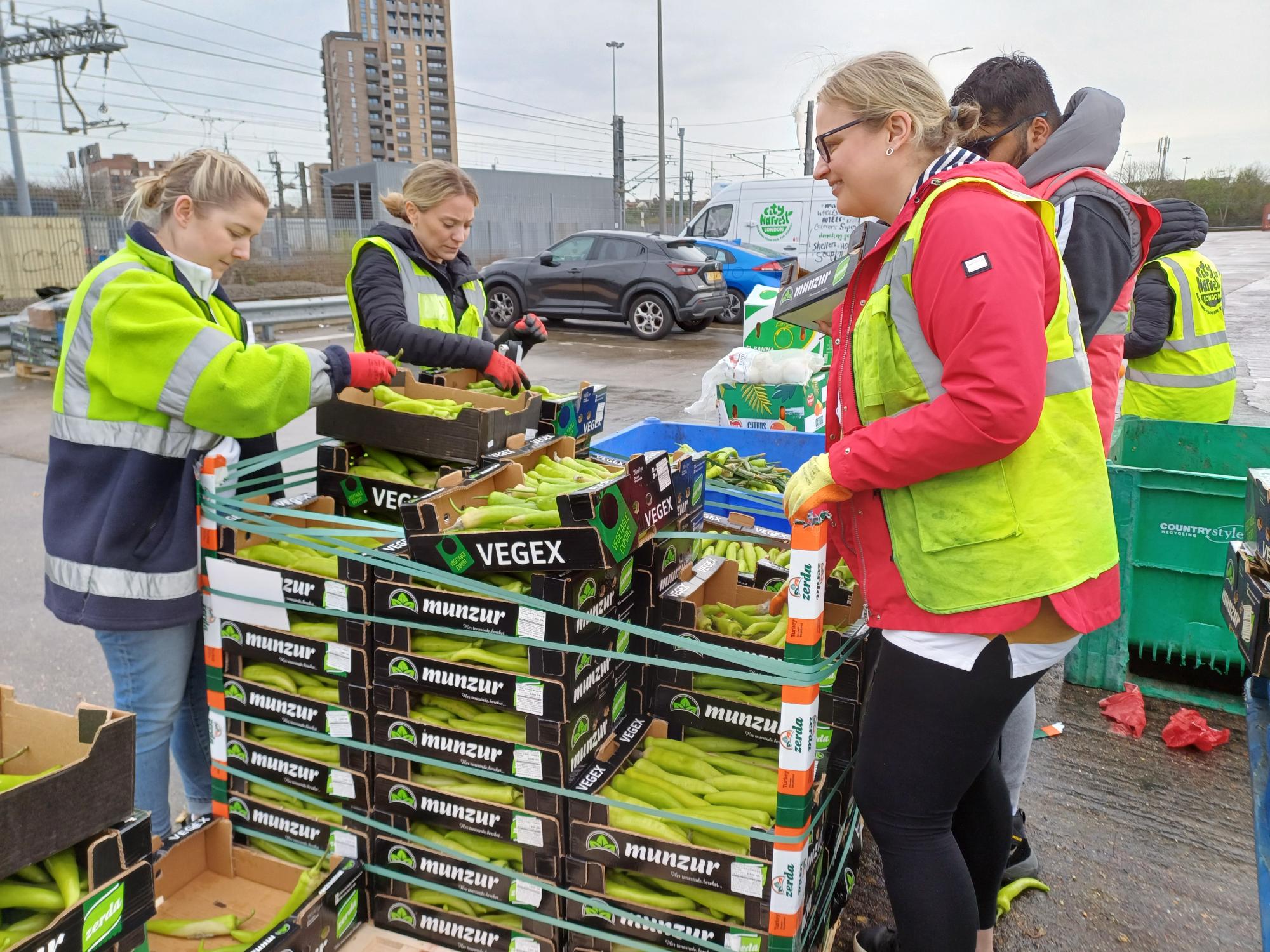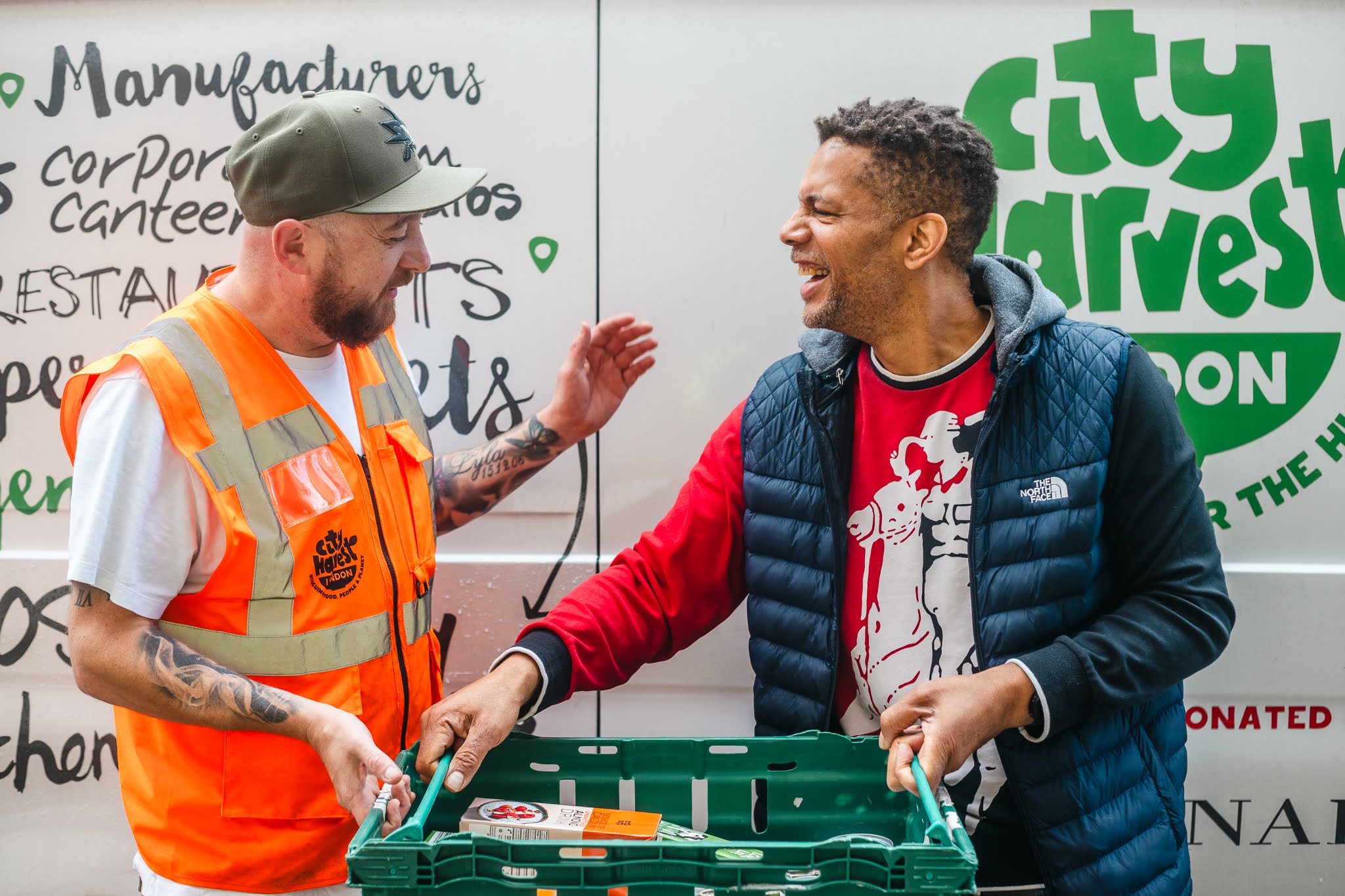Free digital copy
Get Speciality Food magazine delivered to your inbox FREE
Get your free copy
In the UK, the average person throws away a whopping 70kg of food per year, the equivalent to 140 meals.
And businesses in the retail, hospitality and manufacturing sectors are responsible for wasting around 3 million tonnes of food in the same period, with supermarkets said to chuck out 100,000 tonnes of edible products each year.
These figures are all the more shocking when you consider the Food Foundation’s research this January, which found that 14% of households in Britain (approximately 7.3 million adults) are impacted by food insecurity.
Data found that 5% of households said they had whole days where they didn’t eat because they couldn’t access or afford food, and that families were more likely to cut back on healthy foods such as fruit and vegetables.
The disconnect between the food system and people is something many are concerned about. In addition to not being able to afford the basics, 1.2 million British people are living in food deserts, where the availability of fresh produce is low or non-existent, a study by the Social Market Foundation revealed.
This is where social initiatives such as City Harvest are stepping in, providing a bridge between businesses with excess food waste, and those who need sustenance the most.
“It shouldn’t exist,” Mary Parsons, head of food at London-based City Harvest says of the organisation, founded a decade ago by Laura and Stephen Winningham.
“They came over to the UK and saw the amount of food waste here, and people in obvious need, and basically started collecting food in very smal amounts, giving it to a local soup kitchen in the Ealing area,” Mary explains, adding that when Covid hit, “supply went through the roof”.
“Food was coming from all directions, which helped us to grow, but also gave us the opportunity to onboard new charities, and then on the back of Covid and lockdown, the cost-of-living crisis then happened. Demand went sky high!”
The initiative, which grew dramatically in this period, got to a point where it couldn’t source enough food to reach the demand of the people who needed it in London, meaning the group had to be even more resourceful.
It’s an “unfortunate and continuous situation”, Mary reflects, adding that there’s been a shift in the amount of waste food available in the UK as businesses double down on processes due to rising costs, while preparing for new waste legislation. This is, she says, the right thing to do for the planet, but a consequence is the plateauing of donations, at a time when demand remains high.

Since City Harvest began, nearly 70 million meals have been rescued and redistributed, averaging 120 tonnes per week, reaching around 350 charities and community partners across London, including schools, nurseries, domestic abuse centres, refugee centres, hostels, food banks, social supermarkets, soup kitchens and more.
“Having a really diverse group of people we support means we can find a home for everything,” Mary explains, adding that they have the capacity to take everything from a pack of pasta or tin of beans, to 25kg bags of flour.
All parts of the supply chain can help City Harvest in its mission, says Mary. “We work with packing houses and growers, retailers, hospitality, restaurants, caterers, canteens, and events like Wimbledon and Royal Ascot. We collect from IFE, and are a chosen charity for Speciality Fine Food Fair. We then get donations from businesses and school food drives. One of our big drives is the Harvest Festival campaign, running for two weeks in October this year.”
There are lots of reasons why food lands in City Harvest’s warehouse, the main one being short shelf life.
“I was at a conference recently and someone came up to me and said, ‘I’ve got yoghurts I can donate, I’m sorry, they don’t have a long shelf life, only 14 days’. I said that was loads for us. We can take products up to two days before their best before date. A lot of the time retailers won’t take items with even two weeks left on their shelf life.
“We might also get products if they’ve been over forecast and retailers don’t want to sell them, if products have been discontinued, or if packaging and labelling is incorrect.”
Trial stock from new product development is also accepted, for example, “Manilife brought out almond butter, and gave us their NPD production samples. They weren’t in a branded tub, but we applied a label with the ingredients and sent it out.”
Then there are items no one might consider, such as leftovers on production lines. As an example, Mary mentions a ready meal producer who had too much cheese sauce left over. “As long as it can be put in a sealed pack with a label on, we will take it! We’re happy to have a conversation with anyone.”
Something Mary’s especially proud of is the fact that 50% of donations are fresh produce – a very high figure. “It’s because we collect from the markets on a daily basis, as well as from farms and growers.”

It’s not all tinned beans and bags of flour and sugar at City Harvest. Exemplifying how much variety passes through the organisation, Mary says before Christmas they took delivery of a pallet of limited-edition biscuits. “That was fun”. And they’ve even taken stock of a whole 200kg barrel of deli peppers filled with feta. “You can’t pick those up without putting them on a pallet! That’s the great part about this job. You have to problem solve the whole time. How can you collect something and get it to the warehouse, how to find homes for items. Like recently we took in a huge amount of teriyaki sauce. We get some weird and wonderful products!”
“Ultimately sorting this out is better for the planet, but I also think it’s the right thing to do,” Mary reflects. “So much effort goes into producing food - from the farmers and growers, to manufacturing and selling – to see that effort and products go in the bin is kind of terrifying. They say one in four people in London are hungry, so to be able to do something positive with what a lot of businesses would refer to as a ‘problem’ is great.”
If you want to get involved with City Harvest, or other food waste distributors like them (Fareshare, for example) just call or email them for a chat.
“We don’t pay for donations and we don’t charge for collections. We have a budget we use for those, and we will happily collect for free within the M25 with our own vehicles. Outside of the M25 we just ask for a minimum of one pallet and we’ll collect from anywhere in the UK at no cos to the donor.”
Once they’ve landed, products are sorted by a merry band of volunteers before getting to the people who need them most. And City Harvest welcomes new and corporate volunteers who can join them for a day shift. “We’d love to hear from anyone interested in this,” Mary says. “Every pair of hands makes a difference.”